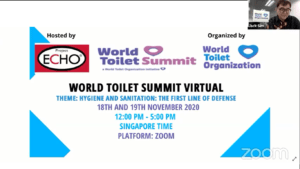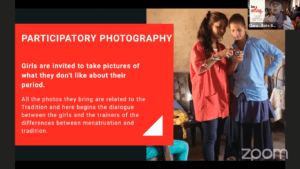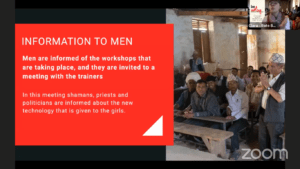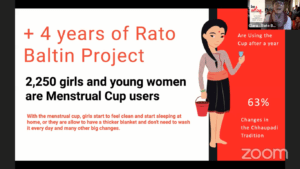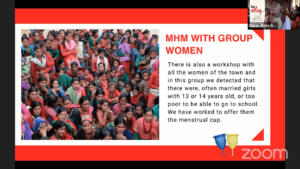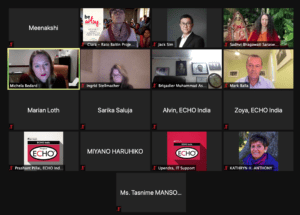The 20th World Virtual Toilet Summit (WTS) has invited be artsy to participate. This was done by Clara Garcia i Ortés, founder and director of the Rato Baltin project, on 19 November.
Project ECHO and the World Toilet Organization organized the Summit with the aim to promote awareness, build political commitment and trigger action on critical water, sanitation, hygiene and health issues at all levels, to facilitate the efficient conservation, protection, development, planning, management and use of wash in all its dimensions on an environmentally sustainable basis for the benefit of the Earth. Clara Garcia participated as a panellist in the session on ‘Menstrual hygiene’.
The WTS explains that ‘meeting the hygiene needs of all women is a fundamental issue of basic public health, basic dignity, self-esteem, and human rights. Period poverty simply means a lack of access to safe sanitary products, menstrual hygiene education, toilets, handwashing facilities and the proper waste management. More than 800 million people menstruate daily. Yet, more than 1.2 billion women lack the access to basic sanitation and hygiene care. The World Health Organization in the United Nations has recognized menstrual hygiene as a global public health and human-rights issue. Women and young girls in many developing countries are discouraged from socializing, going to school or doing certain basic activities when they menstruate. The cultural shame often attached to menstruation and a shortage of resources such as clean toilet with basic sanitary care or sanitary products stop the young girls from going to school and women from working when they menstruate. Many girls and women cannot afford menstrual products on top of lacking the use of the essential sanitation facilities make them harder to manage their monthly affair safely with dignity. These women are often torn between purchasing food and necessities, and sanitary products are not in the list. Many girls and women in developing countries still use old clothing, leaves, ash, cow dung etc. unsafe materials to absorb according to research conducted by UNICEF.
Be artsy often finds these important shortcomings in Nepal, in the Achham area, where we work with projects that give access to hygiene and menstrual education for girls and women. Clara’s participation in the Summit made this clear, and the way we do it.
We need your help, please. Make your donation to the Rato Baltin and Edufem projects today.
Teaming (1 euro/month)
RatoBaltin: https://www.teaming.net/ratobaltinproject
Edufem to prevent early marriage: https://www.teaming.net/edufemproject
Associate: – https://beartsy.org/associate /
Donorbox: –https://donorbox.org/againts-chhaupadi – https://donorbox.org/edufem – Covid-19🦠 https://donorbox.org/mask-4-health-nepal
Thanks!

